Practice,
Practice
Steinway Artists on the
Rewards of Routine
by Laura Lee Smith
A pedestrian on 57th Street sees a musician getting out of a cab and asks, “How do you get to Carnegie Hall?” Without pause, the artist replies wearily, “Practice.”
The punch line is often attributed to Jascha Heifetz or Artur Rubinstein, sometimes to an anonymous musician or taxi driver, and once even to a beatnik, who, in a 1960 telling, replied “Practice, man, practice.” At some point, the line was given a triple flourish: “Practice, practice, practice.”
— The Joke by Matt Carlson, for Carnegie Hall
There’s no way around it: regular practice is a fundamental aspect of becoming a proficient pianist. But how do great artists, both living and immortal, tackle this time-consuming and physically demanding necessity while performing, touring, recording, and teaching? We surveyed Steinway Artists to find out.
HUNG-KUAN CHEN
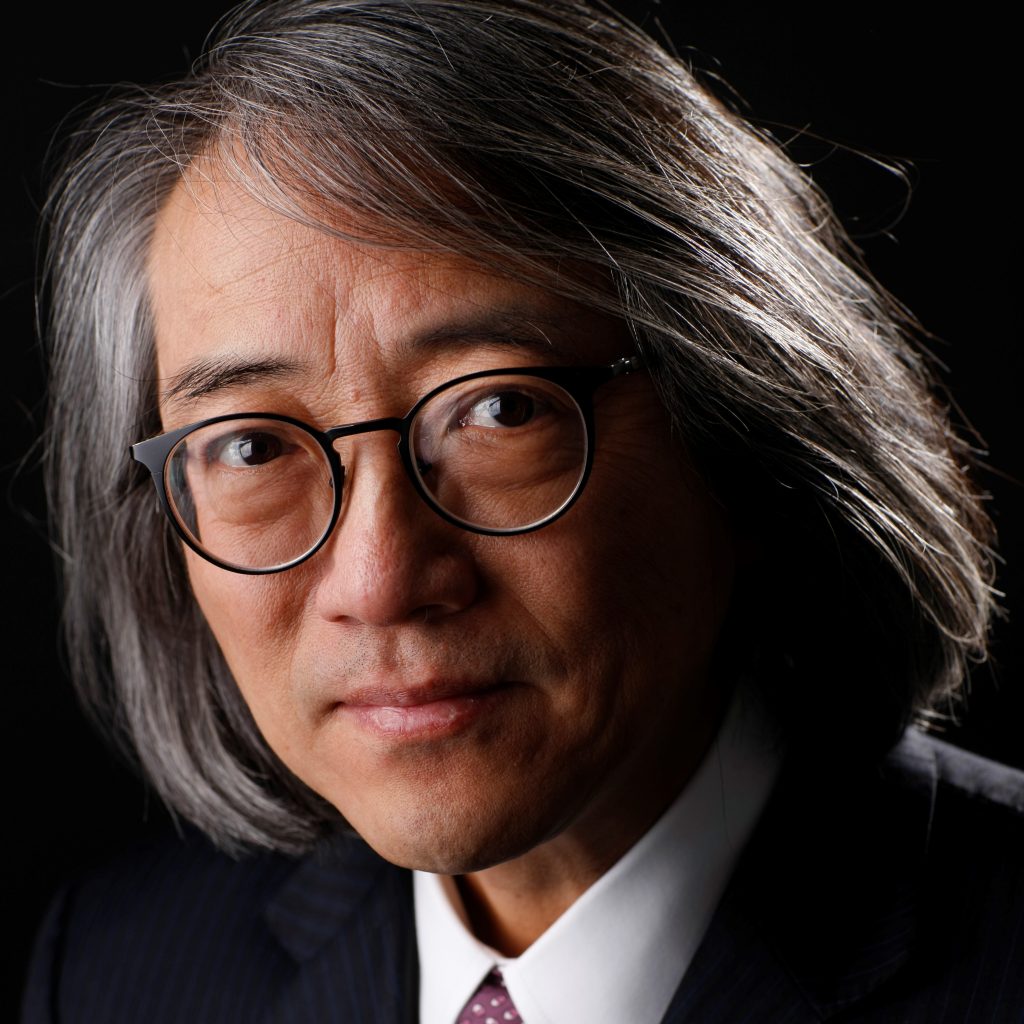 “Some teachers believe you don’t need to practice much and that you only need to use your brain. I don’t agree, unless someone has extraordinary technical ability from a young age, before age ten, perhaps. I haven’t met a pianist who fits that description, with the exception of Yuja Wang, who was my student for three years while she was in Calgary. But even Yuja practiced consistently. She practiced ten hours a day or more. I’ve never met anyone as methodical as Yuja, who would practice with a metronome, step by step.
“Some teachers believe you don’t need to practice much and that you only need to use your brain. I don’t agree, unless someone has extraordinary technical ability from a young age, before age ten, perhaps. I haven’t met a pianist who fits that description, with the exception of Yuja Wang, who was my student for three years while she was in Calgary. But even Yuja practiced consistently. She practiced ten hours a day or more. I’ve never met anyone as methodical as Yuja, who would practice with a metronome, step by step.
“When I was young, I didn’t attend summer festivals. Instead, I would practice at home and often pushed myself to twelve hours a day. It was enlightening; long hours allowed me to dive deep into the music, making it a part of me. When teachers suggested three hours of practice, I just laughed: I never believed it was enough.
“When teachers suggested three hours of practice, I just laughed: I never believed it was enough.”
“Music-making isn’t just about knowledge or technique, it’s about forging a deep connection that has to be cultivated daily. This journey isn’t like going to school where you follow a bell schedule. It’s a spiritual practice, a connection to oneself and one’s soul. I often questioned myself, wondering why I spent so much time on seemingly small details. Then I realized that practice involves listening and waiting for your own response to the sound, not just moving your fingers and hitting the right notes. Initially, it takes a long time to develop a connection to the music, but eventually, the response becomes intuitive.
“Now, I typically wake up early and head to my studio by eight o’clock. I practice for two hours until ten, treating this time as a form of meditation or devotion. It clears my mind and prepares me for teaching. I also make time for practice after lunch, and if I have a concert coming up, I’ll extend my sessions into the evening. I believe the study of piano, and practice in particular, is the most comprehensive exercise because it involves physical, mental, emotional, and spiritual elements.”
HAYATO SUMINO
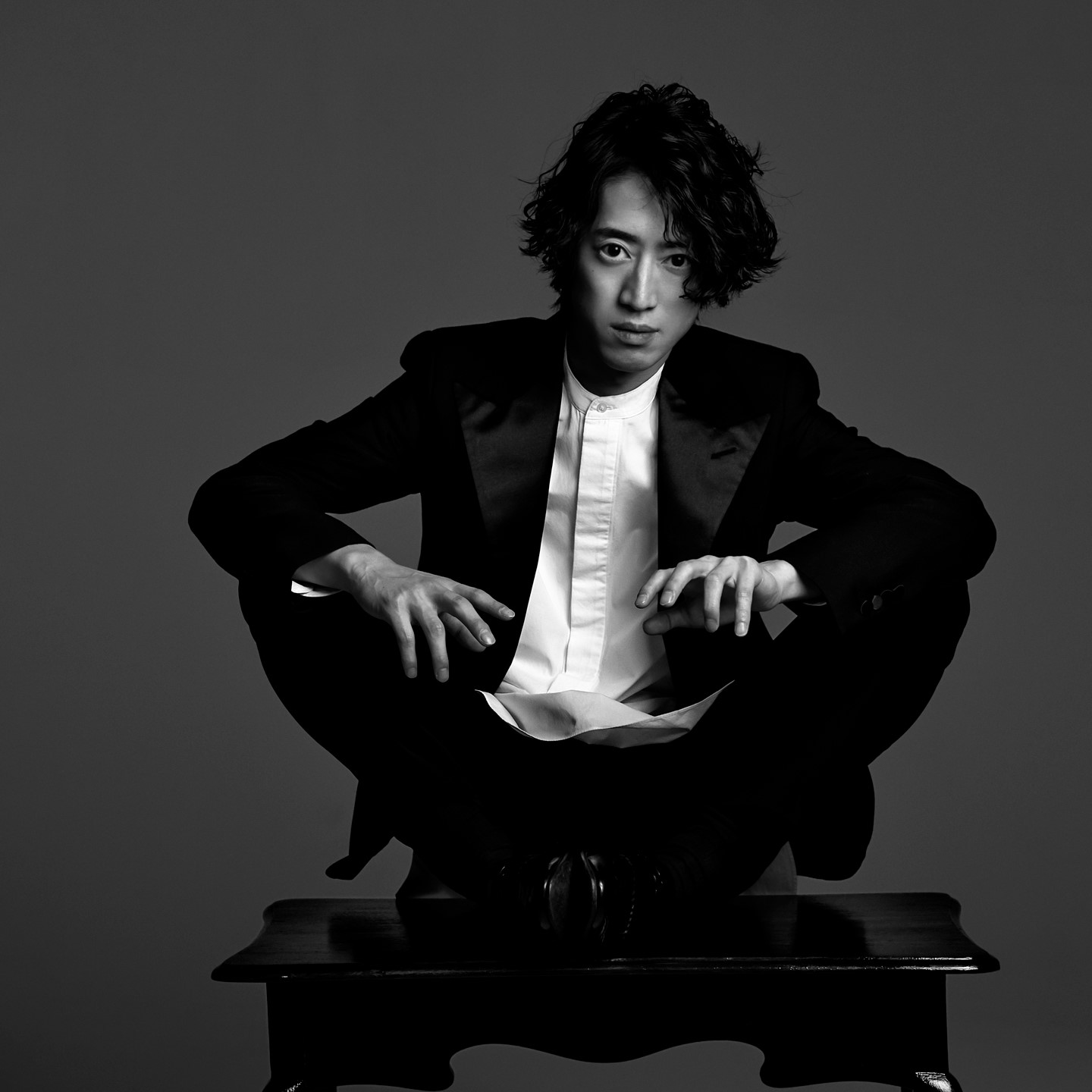 “When I wake up in the morning, I sit down at the piano. I practice for around three hours with a cup of iced coffee, then practice for another three hours in the afternoon. Other than that, I sometimes work on composing and arranging music, or I sometimes record videos for YouTube. When you practice, it is important to understand the overall picture of the piece by analyzing its structure and harmony, before reading the score. This will allow you to learn the piece faster and allow you to spend more time on the musical interpretation.
“When I wake up in the morning, I sit down at the piano. I practice for around three hours with a cup of iced coffee, then practice for another three hours in the afternoon. Other than that, I sometimes work on composing and arranging music, or I sometimes record videos for YouTube. When you practice, it is important to understand the overall picture of the piece by analyzing its structure and harmony, before reading the score. This will allow you to learn the piece faster and allow you to spend more time on the musical interpretation.
“Recording yourself and listening back is very good practice. By listening to your own performance objectively, you will be able to correctly judge what you should improve.”
ISAIAH THOMPSON
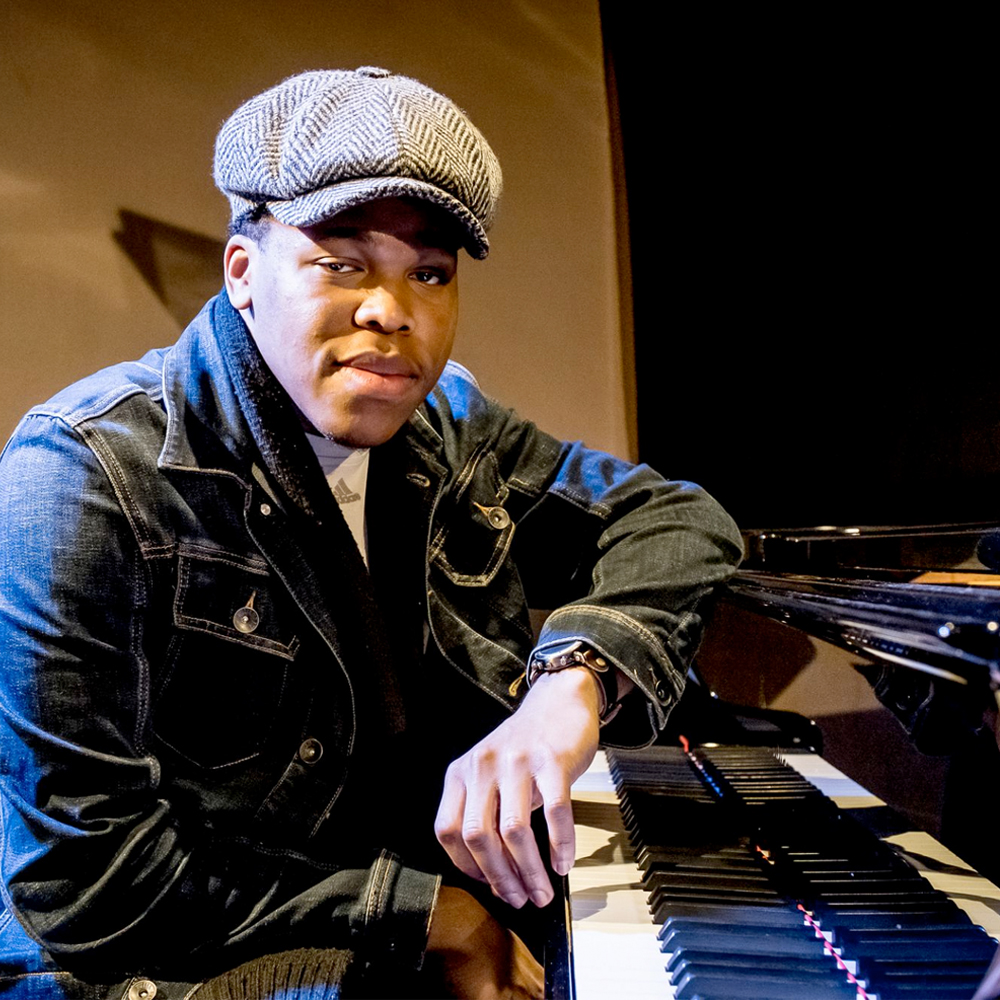 “My practice routine has changed at different points in my life, which is important to acknowledge. Forcing a practice method when your circumstances change doesn’t make sense. When I was a student, I had much more time. I remember waking up early to practice for three hours, then getting another three hours in later. At one point, I was practicing about six hours a day, but that was just my life at that time. In high school, though, that wasn’t always possible due to school commitments. And being at Juilliard was different too: I had to take the bus and wasn’t living in the dorms, so everything changed. Now that I’m married, practicing while traveling can be almost impossible for me.
“My practice routine has changed at different points in my life, which is important to acknowledge. Forcing a practice method when your circumstances change doesn’t make sense. When I was a student, I had much more time. I remember waking up early to practice for three hours, then getting another three hours in later. At one point, I was practicing about six hours a day, but that was just my life at that time. In high school, though, that wasn’t always possible due to school commitments. And being at Juilliard was different too: I had to take the bus and wasn’t living in the dorms, so everything changed. Now that I’m married, practicing while traveling can be almost impossible for me.
“When you’re practicing, you’re not supposed to sound good. If you sound good, you’re not practicing.”
“One thing someone told me a long time ago is that you can practice without your instrument. It doesn’t replace actual practice, but it’s a way to stay engaged when you’re away from your piano. For example, when I was commuting, I often asked myself how I could be more serious about my practice. I’d think about the pieces I was working on while on the train. I’d run through songs in my head to build confidence. I’d also focus on timing, how to improve my rhythm, by really concentrating during those moments. Also, remember this: When you’re practicing, you’re not supposed to sound good. If you sound good, you’re not practicing.”
JOEY ALEXANDER
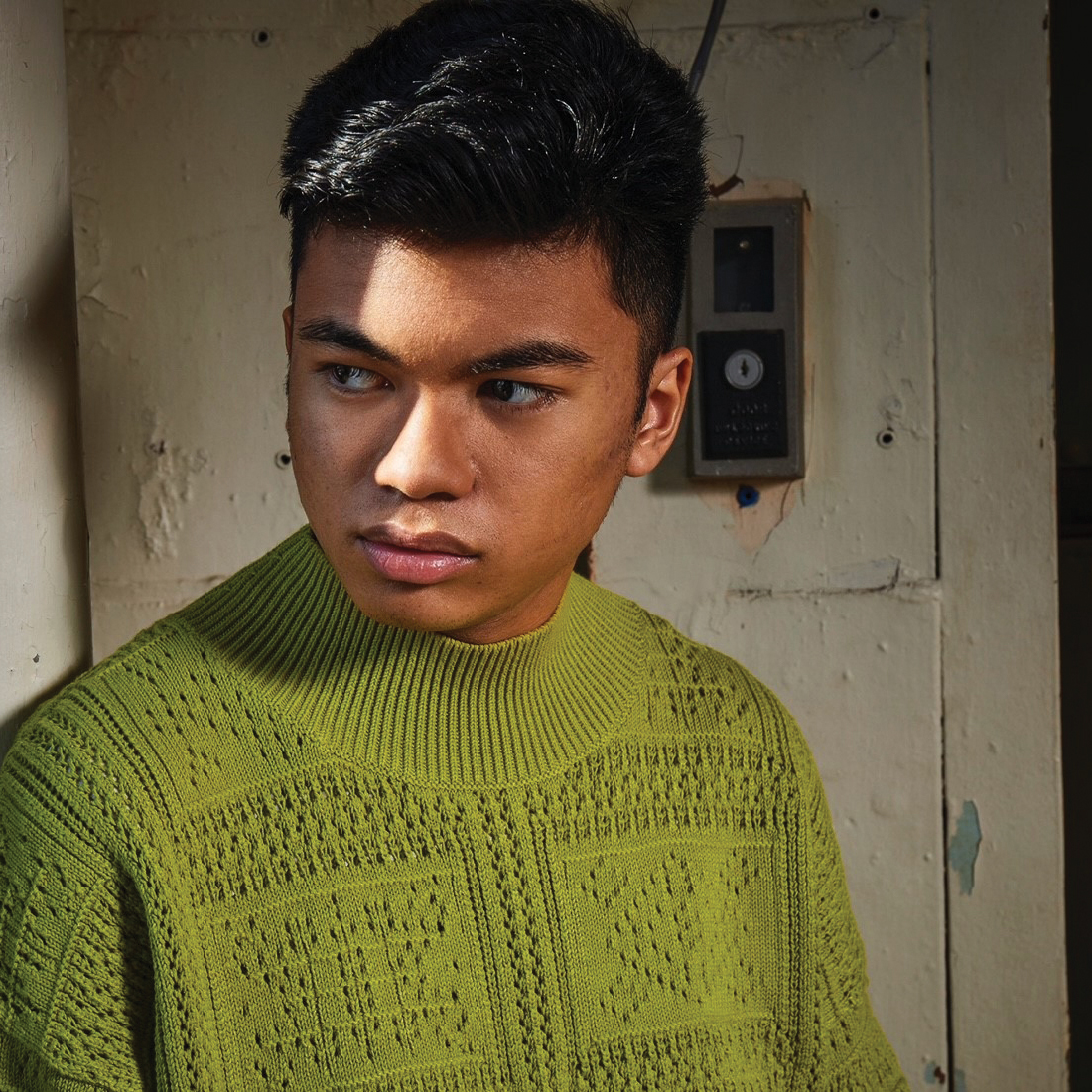 “It is always a good thing to spend more time with the piano. I focus on specific things on certain days and non-specific things, like free playing (composing freely) on other days. I find that I accomplish a lot when I play free, working on coordination of both hands, starting slow and simple. I start with fingering, working on specific technique, and close the session with songs or my compositions. But the main focus is the sound I create out of the piano and the accuracy of my playing.
“It is always a good thing to spend more time with the piano. I focus on specific things on certain days and non-specific things, like free playing (composing freely) on other days. I find that I accomplish a lot when I play free, working on coordination of both hands, starting slow and simple. I start with fingering, working on specific technique, and close the session with songs or my compositions. But the main focus is the sound I create out of the piano and the accuracy of my playing.
“The most important thing is to enjoy the step-by-step process and at the same time be analytical about everything. It’s not how long you practice but how efficient and effective the practice is. We have to have a clear goal every time and make sure we accomplish it.
“The best tool is patience.”
“The biggest challenge is that when I’m on the road, I can’t find time to work on specific things. But on the other hand, I can experiment stuff with the band and discover new things. Every practice is a step toward getting better from yesterday. The best tool is patience.”
Practice Styles of the Immortals
Vladimir Horowitz preferred intense practice sessions of three to four hours, often interspersed with breaks. He would focus on a limited number of pieces, playing them repeatedly until they were deeply ingrained.
Sergei Rachmaninoff reportedly practiced for up to ten hours a day, particularly during his early years. He placed a strong emphasis on technical drills, such as scales and arpeggios, to build strength and agility.
Glenn Gould was known for practicing late at night and often recorded his sessions to review later. He would spend significant time analyzing scores and experimenting with interpretations before playing. Gould believed in the power of mental rehearsal, visualizing the music away from the piano.
Arthur Rubinstein’s practice was known to be flexible and often dictated by his inspiration rather than a strict schedule. He also enjoyed playing with other musicians, often incorporating social elements into his practice routine.
WYNONA WANG
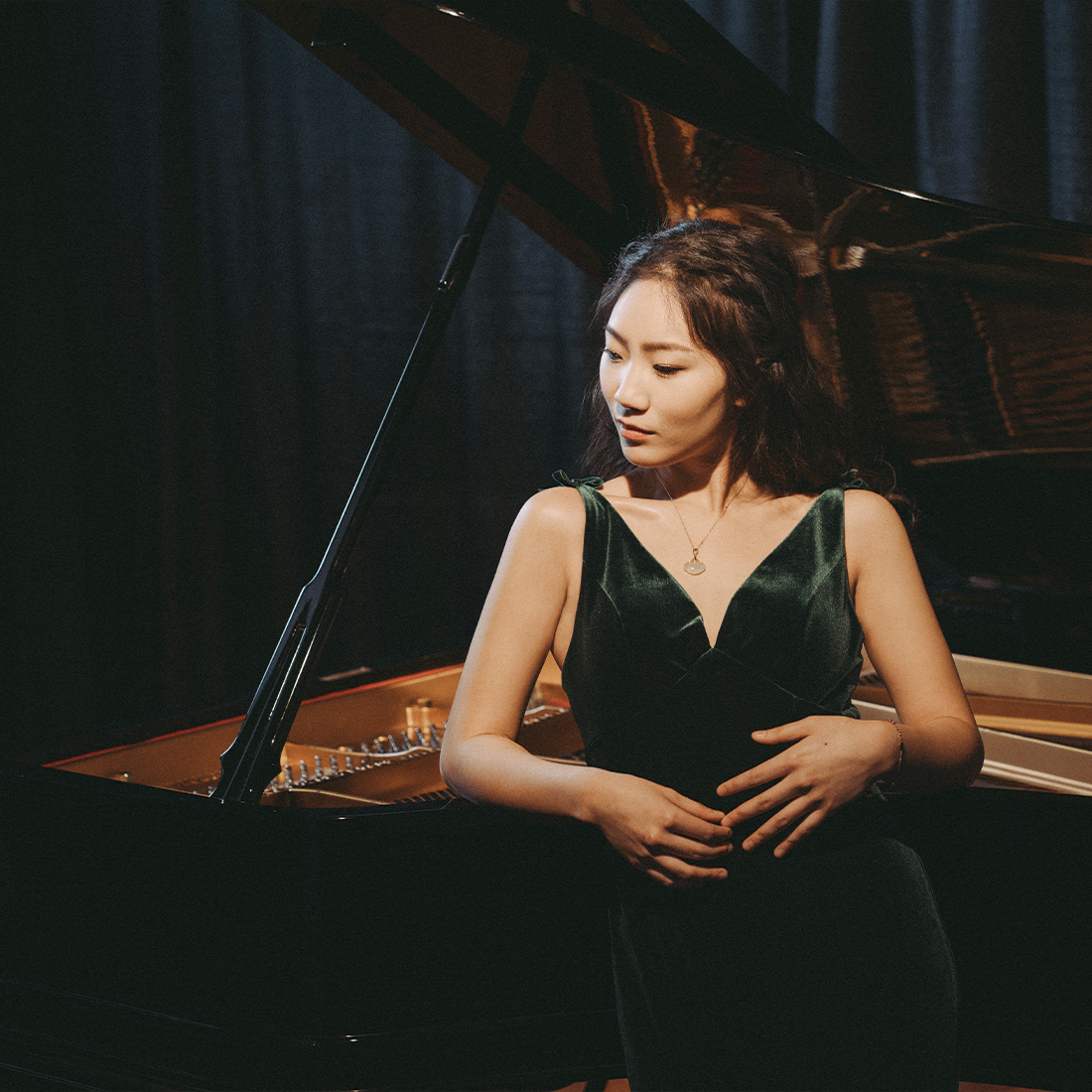 “People often think that Chinese children practice a lot. I had a different experience. I started playing at age four, but I didn’t receive professional training right away. My first experience was in a small room with three pianos and three kids at each piano, practicing simultaneously. It was a bit competitive to get your time at the piano. I believe it’s better not to practice too long. For important competitions or concerts, I find that four to five hours is optimal; otherwise, it’s easy to get injured or lose concentration. I typically focus for about forty minutes at a time. I've heard from professors that taking a five-minute break every fifteen minutes is helpful, but when I’m really in the zone, I can lose track of time.
“People often think that Chinese children practice a lot. I had a different experience. I started playing at age four, but I didn’t receive professional training right away. My first experience was in a small room with three pianos and three kids at each piano, practicing simultaneously. It was a bit competitive to get your time at the piano. I believe it’s better not to practice too long. For important competitions or concerts, I find that four to five hours is optimal; otherwise, it’s easy to get injured or lose concentration. I typically focus for about forty minutes at a time. I've heard from professors that taking a five-minute break every fifteen minutes is helpful, but when I’m really in the zone, I can lose track of time.
“A good piano really helps with inspiration. I enjoy practicing at school because each day brings a different piano sound. It really depends on inspiration. I don’t believe in forcing yourself to practice if you really don’t want to. I suggest sitting at the piano for just ten minutes to see how you feel. Often, once I start, I end up practicing for an hour or more. I travel on weekends to perform, so during the week, I practice when I can. When I travel, I ask for a practice room for a few hours a day if possible.”
CONNIE HAN
 “I don't really follow a warm-up routine anymore. I also don’t think too much about technique. Instead, I think about how to achieve the most natural and powerful sound effortlessly, using the laws of gravity and my natural intuition. I begin my practice with a meditative approach, often starting with a Bach piece. In fact, I did that today, using a metronome. Starting with Bach helps get my brain going, and once I’m warmed up, I feel inspired to compose, regardless of my mood. Bach provides a foundation for much of the syntax and language in both jazz and classical music. I usually spend about half an hour on Bach, and by that time, I’m ready to start improvising. I record my improvisations, transcribe them into score software, or write them down — and then I compose.
“I don't really follow a warm-up routine anymore. I also don’t think too much about technique. Instead, I think about how to achieve the most natural and powerful sound effortlessly, using the laws of gravity and my natural intuition. I begin my practice with a meditative approach, often starting with a Bach piece. In fact, I did that today, using a metronome. Starting with Bach helps get my brain going, and once I’m warmed up, I feel inspired to compose, regardless of my mood. Bach provides a foundation for much of the syntax and language in both jazz and classical music. I usually spend about half an hour on Bach, and by that time, I’m ready to start improvising. I record my improvisations, transcribe them into score software, or write them down — and then I compose.
“Practicing is amazing because it’s closely linked to movement. I’ve learned these concepts autodidactically, and while I’m sure there are methods that address this, understanding the laws of physics is crucial when trying to produce a powerful sound without forcing it. This philosophy, of practicing with an awareness of gravity, is vital. If you play incorrectly or use your arm or shoulder improperly, you risk strain and injury, and you won’t sound very good.
“Starting with Bach helps get my brain going, and once I’m warmed up, I feel inspired to compose, regardless of my mood.”
“Horowitz was fascinating; he had a completely different physiology as a large man, yet he exemplified what I’m talking about. The best in the world understand this. I don’t focus on technique in a conventional sense; rather, I consider how I can use my body holistically to achieve freedom and control in the right way. As for practice advice, start slow, but also make sure you truly love what you’re pursuing. If you don’t have that passion, your attention span will suffer. I also recommend taking technique seriously. Too often, I see students with raw talent who don’t take classical music seriously because it’s sometimes considered unfashionable. They end up sounding unrefined, like someone who can’t fluently speak English. This theme resonates in both my personal philosophy and my musical approach: having fluency in language and expressing ideas clearly, with sophistication and simplicity when necessary, and complexity when appropriate. You can’t achieve that without a solid foundation.”
MARILYN NONKEN
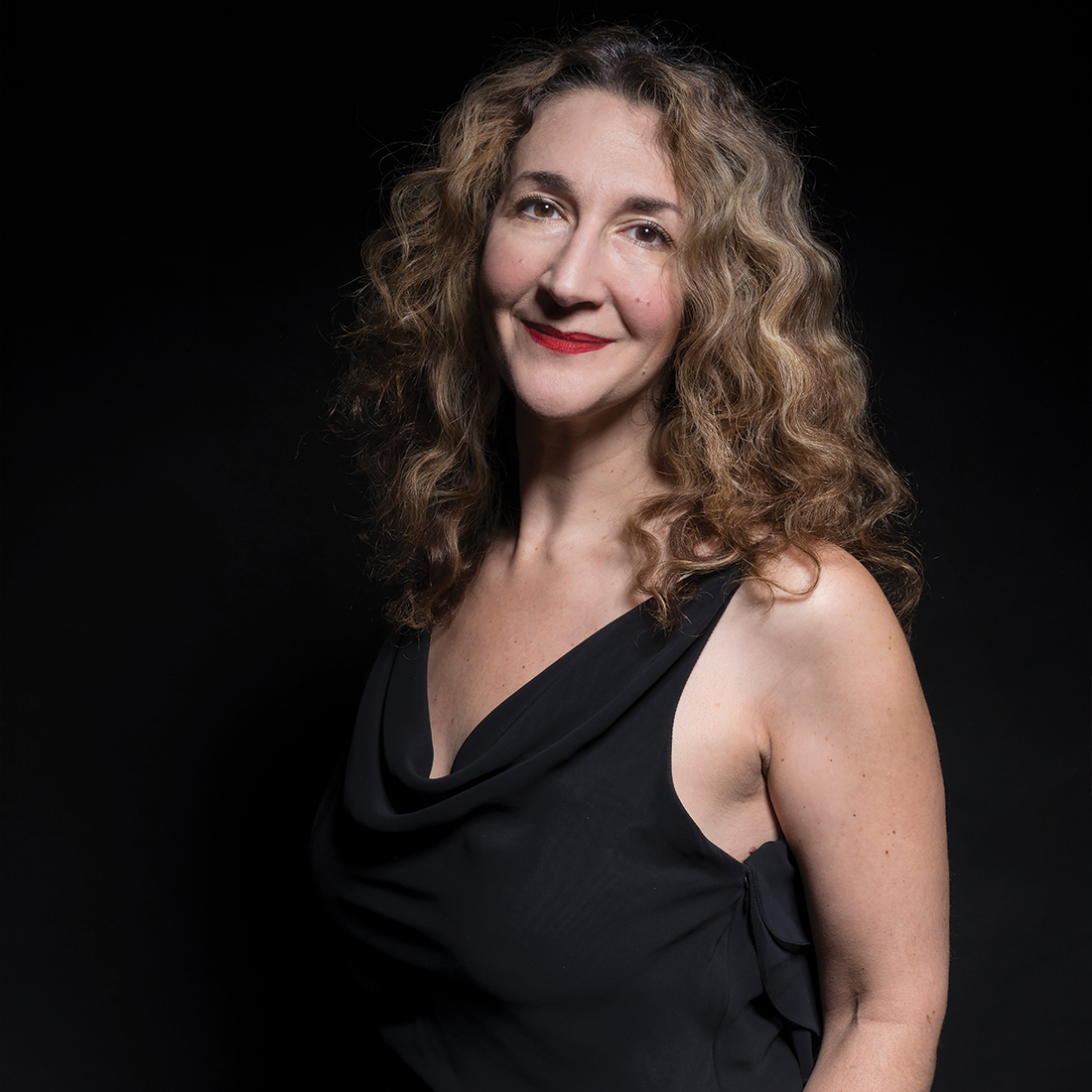 “I practice early in the morning. I try to get all my practice done before nine o’clock. For me, starting the day with music is vital; it reminds me of why I do what I do and keeps me connected to my inspirations and the composers I love. Staying in touch with my musical motivations is a top priority. As I’ve progressed in my career, efficiency in practice has become crucial. I often see wonderful students in school who have six or eight hours a day to practice. For someone at my level, that’s not always realistic. I’ve learned to work efficiently, identify technical problems, and stay organized in my approach to upcoming performances. Using time wisely is a valuable skill for any performer.
“I practice early in the morning. I try to get all my practice done before nine o’clock. For me, starting the day with music is vital; it reminds me of why I do what I do and keeps me connected to my inspirations and the composers I love. Staying in touch with my musical motivations is a top priority. As I’ve progressed in my career, efficiency in practice has become crucial. I often see wonderful students in school who have six or eight hours a day to practice. For someone at my level, that’s not always realistic. I’ve learned to work efficiently, identify technical problems, and stay organized in my approach to upcoming performances. Using time wisely is a valuable skill for any performer.
“One of the big challenges we see, especially with young musicians, is the habit of over-practicing, which can lead to physical problems. It’s important to develop the ability to work efficiently, stay inspired, and make progress quickly, both as a student and as a professional. Typically, I focus on whatever I’ll be recording or performing. Prioritizing tasks with deadlines helps me make meaningful progress. Even if I have ongoing recordings, I set deadlines for myself, so I’m not just going through the motions. It’s motivating to know that by a certain date, I want to be playing a piece at a specific tempo or feeling ready to perform.
“When I'm on the road, it’s not just about finding a place to practice; it’s about making it part of my daily routine. No matter where I am, I make time to practice, even if it’s just for an hour. It’s like a Zen practice, an integral part of my daily life. Many young students are exposed to incredible recordings and videos, which can lead to a desire to emulate their idols. But practicing to become someone else can be unfulfilling. Instead, I encourage them to focus on their own sound, interpretation, and identity as musicians. That’s a much more exciting and attainable goal than simply trying to replicate another artist’s style. Ultimately, no matter how much we admire historical figures, we will always sound like ourselves, which is a good thing. Embracing that uniqueness is what makes our musical journeys special.”
RAJA RAHMAN
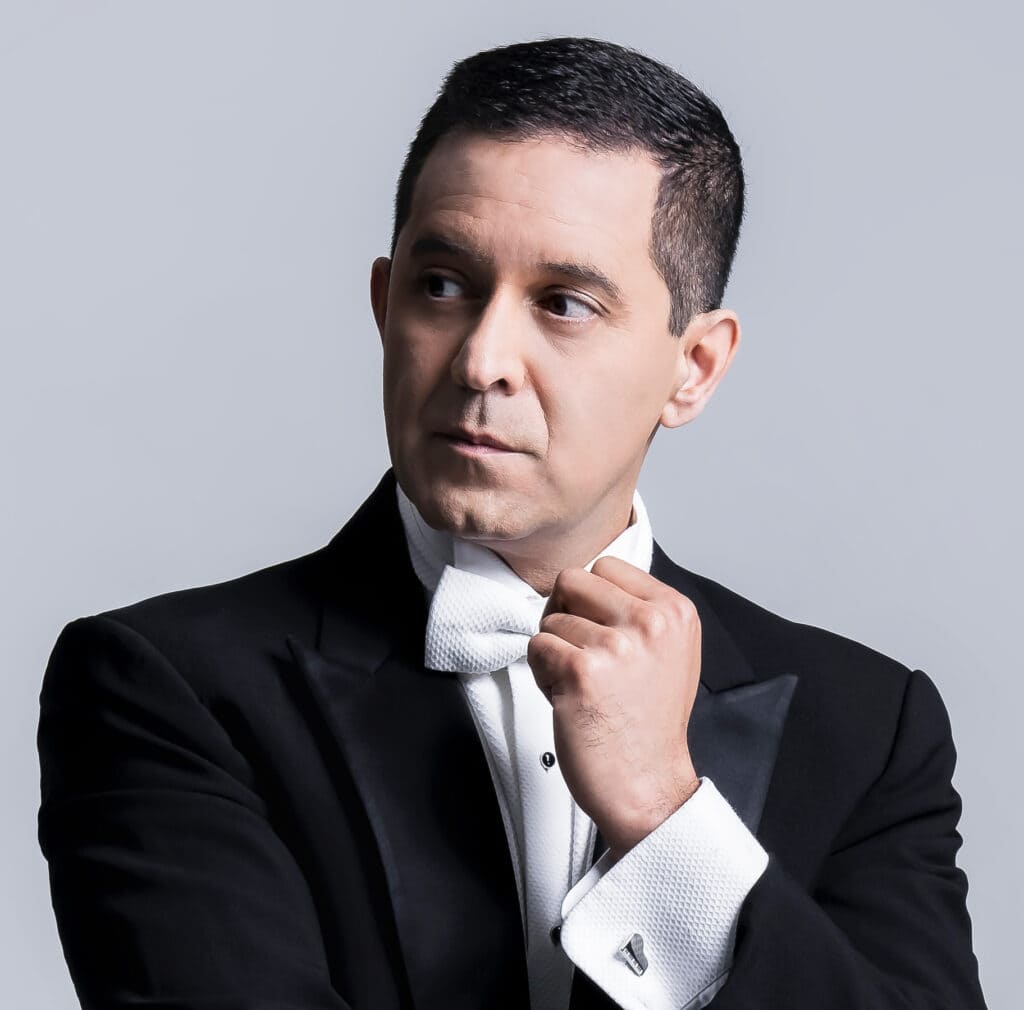 “When artists are still in school, they have the luxury of several hours a day to practice, anywhere from three to six hours, which allows them to prepare for lessons, rehearsals, and concerts. But after graduation, as we take on jobs or other responsibilities, those hours shrink significantly. Typically, I plan my practice schedule either the night before or first thing in the morning. I try to carve out blocks of time, which can vary. Some pianists prefer shorter blocks with breaks in between, but I personally like longer stretches. This allows me to focus deeply on specific passages. However, most of the time, I have limited hours, so I have to be strategic about my approach, almost like a military operation. I set clear goals for each practice session, which requires a lot of planning and mental preparation throughout the day.
“When artists are still in school, they have the luxury of several hours a day to practice, anywhere from three to six hours, which allows them to prepare for lessons, rehearsals, and concerts. But after graduation, as we take on jobs or other responsibilities, those hours shrink significantly. Typically, I plan my practice schedule either the night before or first thing in the morning. I try to carve out blocks of time, which can vary. Some pianists prefer shorter blocks with breaks in between, but I personally like longer stretches. This allows me to focus deeply on specific passages. However, most of the time, I have limited hours, so I have to be strategic about my approach, almost like a military operation. I set clear goals for each practice session, which requires a lot of planning and mental preparation throughout the day.
“During rehearsals, yes, we give our all, but in practice, we need to be mindful.”
“Even when I’m engaged in other responsibilities, thoughts about my music are always present. For instance, while in meetings or teaching, I’m often thinking about transitions or specific sections I need to work on. This constant mental engagement allows me to maximize my practice time when I finally sit at the piano. It’s often less about technical execution and more about conceptualizing passages and their relationship with the orchestra or other instruments. When you prepare mentally, you’re in a better position when you finally get to the piano.
“Another important aspect is the value of slow practice, as emphasized by artists like Itzhak Perlman. Practicing slowly helps solidify techniques and develop deeper understanding. It’s crucial to balance rigorous practice with mindfulness of your body. For instance, I had a moment recently where I felt discomfort in my elbows, which was a wake-up call. It’s vital to recognize our physical limitations and not push ourselves to one-hundred percent every day. During rehearsals, yes, we give our all, but in practice, we need to be mindful.”